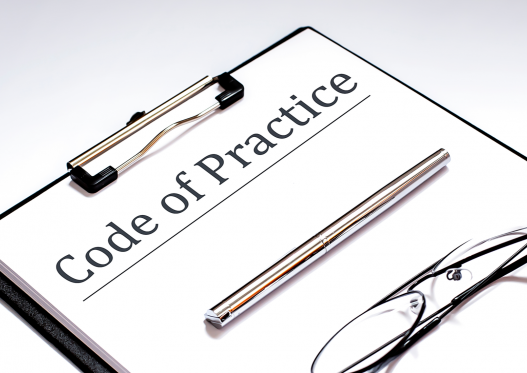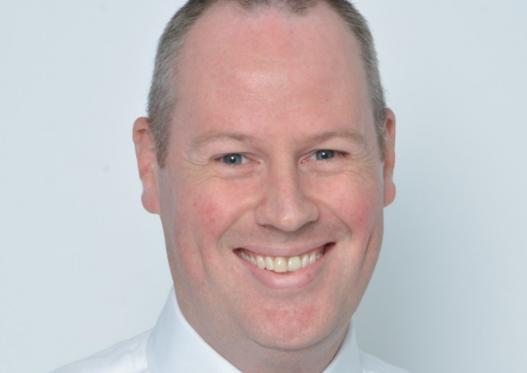The Australian Banking Association’s Code of Practice, which was originally introduced in 1993, says it is underpinned by guiding principles — shared by all member banks — that provide an ethical, customer-oriented and sustainable framework.
Trust and confidence is the title at the top of a detailed list of those guiding principles. Integrity, service, and transparency and accountability follow at number two, three and four on the list.
But the decline in trust in the banking sector over the past few decades is clear. And quantifiable. A series of scandals has led to the widespread view that there was no such thing as ethical banking.
While many banks were already reflecting on their ethical behaviour following the Global Financial Crisis and the subsequent events in Australia that culminated in the Hayne Inquiry, mistrust continues to be the public’s prevailing perception.
Even though COVID-19 has seen banks focus on a strategy driven by corporate social responsibility and a longer term view where P&L isn’t the be-all and end-all, the financial services industry is in the expensive game of playing catch up.
You only have to look at the spectacular amounts of compensation paid to customers as a result of unethical conduct from the fees for no service scandal.
The current total is $1.86 billion and rising. ASIC says 1,077,387 customers have now either received a refund or an offer of a refund.
So how did banking fall from grace?
The general consensus from commentators - whether industry-based experts or academics - generally points to a sales-driven approach supplanting older models of professionalism in banking when the bank manager had the same standing as the local doctor or lawyer in the local community.
Then, as now, the fiduciary responsibility of the banker was to look after the money entrusted to them by the customer. An ability to earn profits by taking risks with that money has never been in question - as long as those risks are well managed.
But the kind of ethical values - or lack of ethical values - driving the finance industry into the 21st century led to a perfect storm of ethical failures where the kind of financial market manipulation that was sub-prime mortgage lending was seen as acceptable. Even when the Payment Protection Insurance scandal replaced the headlines about UK and US government bailouts following the Global Financial Crisis, Australia seemed to escape relatively unscathed.
Here though banking practice clearly did not equal ethical conduct.
The 2009 Future of Financial Advice Inquiry that stemmed from industry failures like Storm Financial and Opes Prime examined the role of financial advisers and the general regulatory environment. Three years later the Cooper Inquiry into governance examined superannuation, unnecessary costs and ways to protect retirement savings. A 2014 parliamentary committee on Corporations and Financial Services Inquiry proposed lifting professional ethical standards and the 2015 Murray Inquiry aimed to provide a blueprint for a the financial system over the next decade.
Yet the Royal Commission into Misconduct in the Banking, Superannuation and Financial Services Industry that throughout 2018 became inevitable.
And it set a torch to the reputation of the industry, as well as the regulators tasked with ensuring bankers acted with some sort of social responsibility.
The title of the Royal Commission is telling enough itself, when it is viewed through an ethical practice lens.
Every time the hearings were in session, the TV headlines and newspaper front pages were unwavering in their coverage and condemnation.
To many, a large proportion of the 76 recommendations in Kenneth Hayne’s final report would need to address organisational business culture.
Deloitte Partner Dr Deen Saunders, whose consulting firm published a report at the time Hayne made his recommendations, said: “By our reckoning 34 of the 76 recommendations speak to issues of ethics and professionalism with the goal of restoring trust in the actions of individuals and corporations.
“Ethics and trust are carved into the very fabric of the recommendations in Hayne’s Report.”
For others, the way of fixing the ethic dilemmas was with the proverbial big stick.
Thus the Hayne Inquiry heralded an era of court action for the regulators whose mantras became “why not litigate” for ASIC and “constructively tough” for APRA.
The terrible bushfires and the COVID-19 pandemic may have delayed proceedings - and helped the banking industry and financial services sector repair some of its tarnished reputation - but both regulators have reiterated their commitment to seeing justice done.
With the figures at the top of this article thought to be just a fraction of the total banks are putting aside to sort out the fees for no service debacle - just as much money is going into tracking down historic customer records as the payouts - it is clear that re-building your businesses reputation is more costly than ensuring the right kind of business ethics.
Former Association of Superannuation Funds of Australia CEO Pauline Vamos made this point at the Retail Banking Summit in 2018 as the Royal Commission started to reveal the worse examples of unethical behaviour.
“Businesses with good ethics outperformed the ASX. The link between conduct and share price is there to see,” she told the audience.
Organisations seen behaving badly, she added, see their reputation damaged which can cost much more than making acting ethically mandatory.
“Once your reputation is damaged the cost of building it back up is huge. There’s more spent on that than changing an organisation’s behaviour in the first place.”
That the world’s biggest investor BlackRock made corporate social responsibility part of the zeitgeist the same year, may be coincidental.
But Larry Fink’s now famous annual letter to CEOs also shows the cost of acting unethically comes with financial consequences.
The fund manager with a $6 trillion investment war chest made it clear that organisations had to demonstrate their business had a social purpose rather than short-term, profits at all costs agenda - or lose BlackRock backing.
Fink, who has been writing these letters since the GFC, highlights the ethical duty BlackRock’s has for the “teachers, firefighters, doctors, businesspeople, and many others” it acts for.
“It is their money we manage, not our own. The trust our clients place in us, and our role as the link between our clients and the companies they invest in, gives us a great responsibility to advocate on their behalf,” he says in his latest missive.
So if we accept the need to re-set ethical standards, how does your bank stand out.
FINSIA’s strategy to promote professionalism in banking pre-dates the Royal Commission, Fink’s letter, and many statements - not least from regulators - about the need for instil individual accountability.
Having a sense of pride and purpose comes with principles-based professional standards that allow for an ethical dilemma-solving approach, as opposed to a tick box method of making sure people do the right thing.
Sanctions imposed as a result of internal and external inquiries are often dealt with by completing compliance exercises, which has often been talked of as education as a punishment. Or a race to the bottom.
“The challenge that we are working on is how do we get people to recognise they actually have an ethical dilemma in the first place,” FINSIA CEO Chris Whitehead said during a podcast with Australian Finance Industry Association CEO Diane Tate.
Though one of the fundamentals of this ethical-driven conduct is competency.
After all, it’s difficult to exercise good conduct if you cannot do your job properly. Hence FINSIA’s return to the education space with the Professional and Responsible Banking in the Digital Age and Chartered Banker programs. The former is aimed at covering the fundamentals of banking and has been picked as a must-have qualification for several Australian banks.
Judo Bank founder and CEO Joseph Healy is a long time supporter of the course that was originally called Professional Banking Fundamentals, describing it as non-negotiable to career advancement at the unicorn which is one of the biggest recent success stories in Australian banking.
Another high-profile backer is National Australia Bank CEO Ross McEwan who mandated that all 34,000 employees would need to pass the course that has a specific Ethics and Professionalism chapter.
“Having the right conversations with customers is a vital banking skill. Sometimes saying no to customers is the right thing to do – we can’t put people into more debt if they can’t afford to pay it back,” he said at its launch, very much highlighting the ethical banking aspect of what is called Career Qualified in Banking at the Big Four bank.
“If we want to earn customers’ trust, we have to be open and upfront. And trust is something I do not take for granted.
“Where NAB has stood in the eyes of the community over the past few years is not where we want to be.
“After the royal commission, the banking industry was found wanting.
“We needed to go back to basics. Doing the right thing by customers – it’s what we as a bank should be doing and what our customers and the community should expect.
“And while we’re moving in the right direction, the only way we’re going to keep earning trust and respect in the community is if we get the basics right every time.
“I want NAB to have the best-qualified bankers in the industry. This includes a consistent understanding of ethics and conduct, and will be delivered in partnership with the Financial Services Institute of Australasia.”
McEwan may have had the advantage of seeing this professional approach work while CEO of the Royal Bank of Scotland.
That polls from UK show a rise in trust since it hit rock bottom after a series of scandals following the Global Financial Crisis suggests it is working there.
A special report for FINSIA’s northern hemisphere equivalent the Chartered Banker Institute referred to several polls showing how trust was returning to the financial services sector there.
Time and again students who have taken FINSIA’s exams and have talked about their experience have focused on the chapters on Ethics and Professionalism.
The common denominator is that they can be the toughest, yet most interesting sections.
NAB Retail Customer Executive Rob Gower, who became the first person to complete the Professional Banking Fundamentals and the Chartered Banker by Experience, talked of the lack of ethics training in any of the previous qualifications he had taken during 20 years in the industry.
“Prior to PBF, I think that I was a pretty ethical guy. And I still do,” he said.
“The course has really made me think about the way that I make everyday decisions and how I can use the different types of ethical decision-making processes.
“Previously I had successfully relied on my personal values to make decisions. Whereas this way, it provided me with real processes that ensured consistent high quality, ethical decision making.”
Judo Bank’s Emily Smith - who was promoted from analyst to banker after passing Professional Banking Fundamentals - clearly sees the benefits of the course and the focus on ethics.
“From our perspective, Professional Banking Fundamentals may be compulsory. But when you're doing the course, you see the purpose of it,” she said.
“I think the premise of Judo is banking as it used to be, banking as it should be. And I think doing the PBF, for me, puts a bit of a context to where banking fits into the bigger picture and wider economy
“There's a huge focus on ethics in that and other different aspects, like complaints - those sorts of things that gives a bit of a broader picture of what we're doing and why are we doing it.
“It gives a lot more reason why we operate the way we do, which is important for your day-to-day understanding of why we're doing things.”








